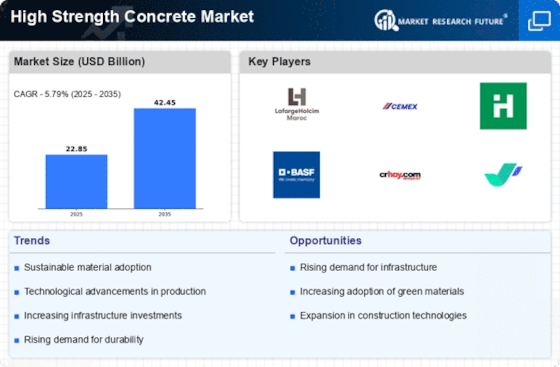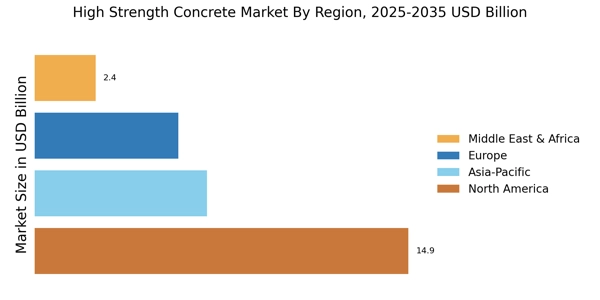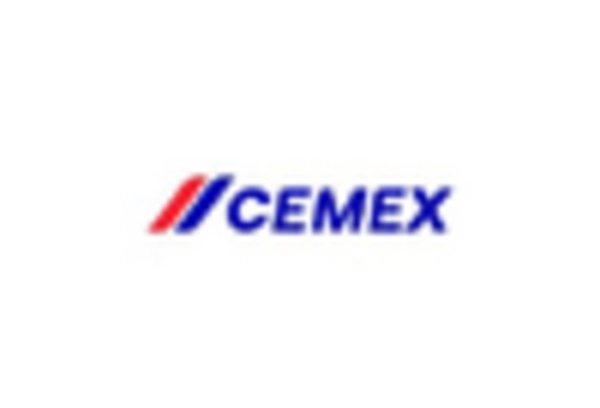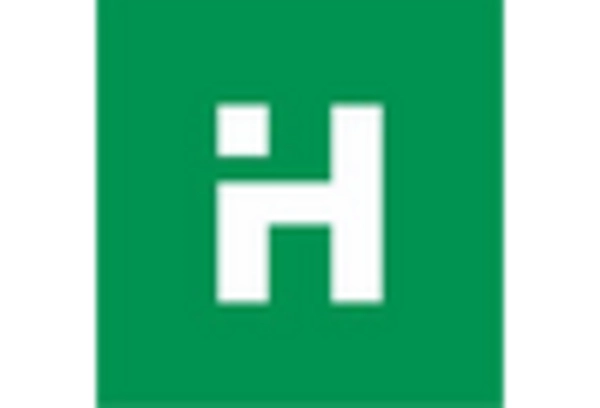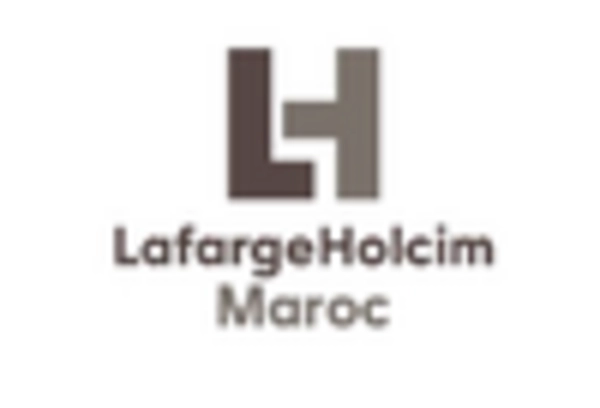Innovations in Concrete Technology
Innovations in concrete technology are significantly influencing the High Strength Concrete Market. Advances such as the development of ultra-high-performance concrete (UHPC) and the incorporation of nanotechnology are enhancing the properties of high strength concrete. These innovations not only improve compressive strength but also increase resistance to environmental factors, which is crucial for long-lasting structures. The market for high strength concrete is expected to witness a surge, with estimates suggesting a growth rate of around 6% annually. This growth is likely driven by the construction industry's need for materials that can meet stringent performance standards while also being cost-effective. As technology continues to evolve, the High Strength Concrete Market is poised for substantial transformation.
Government Initiatives and Regulations
Government initiatives and regulations aimed at improving construction standards are pivotal in shaping the High Strength Concrete Market. Many countries are implementing stricter building codes that mandate the use of high-performance materials to enhance safety and sustainability. For instance, regulations that promote the use of high strength concrete in seismic zones are becoming more prevalent, as they provide better resistance to earthquakes. This regulatory environment is expected to drive the market, with projections indicating a potential increase in demand by 4% annually. As governments prioritize infrastructure resilience, the High Strength Concrete Market is likely to benefit from increased investments and policy support.
Rising Demand for High-Performance Structures
The increasing demand for high-performance structures is a primary driver of the High Strength Concrete Market. As urbanization accelerates, there is a notable shift towards constructing buildings that can withstand extreme conditions. High strength concrete offers superior durability and load-bearing capacity, making it ideal for skyscrapers, bridges, and other critical infrastructure. According to recent data, the construction sector is projected to grow at a compound annual growth rate of approximately 5.5% over the next five years, further fueling the demand for high strength concrete. This trend indicates that stakeholders in the construction industry are increasingly prioritizing materials that enhance structural integrity and longevity, thereby propelling the High Strength Concrete Market forward.
Increased Investment in Infrastructure Development
Increased investment in infrastructure development is a crucial driver for the High Strength Concrete Market. Governments and private entities are allocating substantial funds towards enhancing transportation networks, utilities, and public facilities. This investment trend is particularly evident in emerging economies, where infrastructure development is essential for economic growth. Reports indicate that infrastructure spending is expected to reach trillions of dollars in the coming years, creating a robust demand for high strength concrete. The material's ability to support heavy loads and resist environmental degradation makes it a preferred choice for large-scale projects. As infrastructure initiatives expand, the High Strength Concrete Market is likely to experience significant growth.
Growing Focus on Sustainable Construction Practices
The growing focus on sustainable construction practices is a significant driver of the High Strength Concrete Market. As environmental concerns rise, the construction sector is increasingly adopting materials that minimize ecological impact. High strength concrete can be produced with recycled materials and has a longer lifespan, which reduces the need for frequent repairs and replacements. This sustainability aspect is becoming a key consideration for builders and developers, with market analysts estimating that the demand for eco-friendly construction materials will grow by approximately 5% over the next few years. Consequently, the High Strength Concrete Market is likely to see a shift towards more sustainable practices, aligning with global efforts to reduce carbon footprints.


